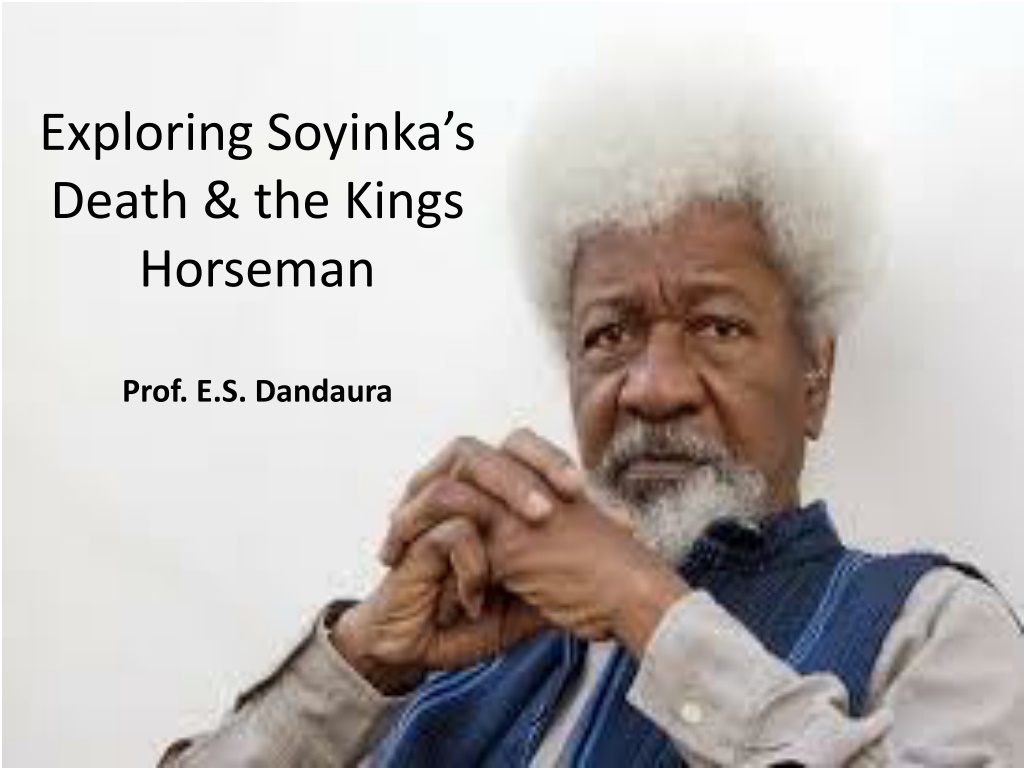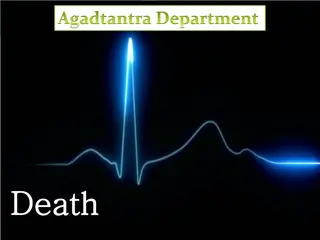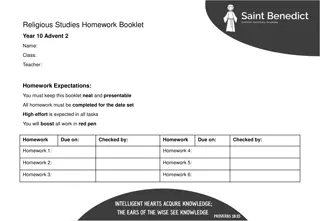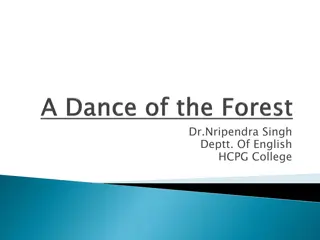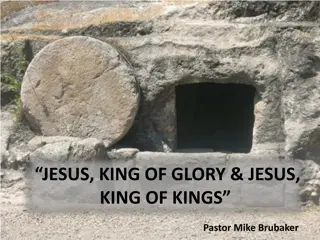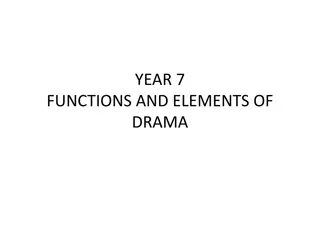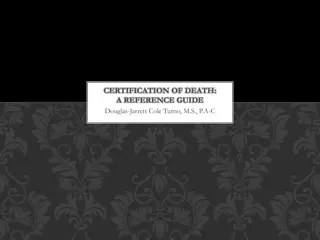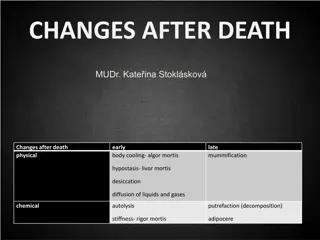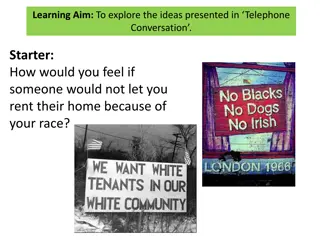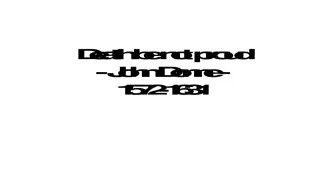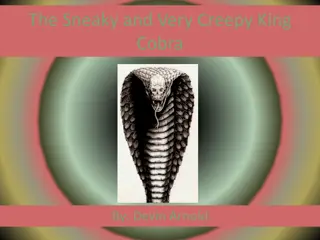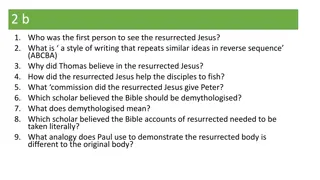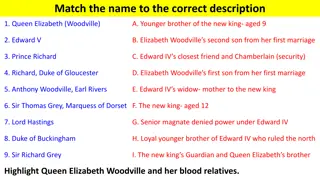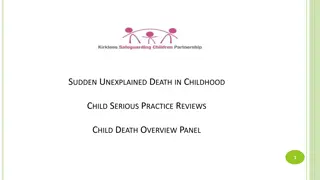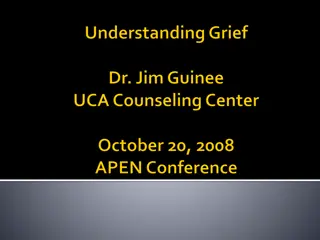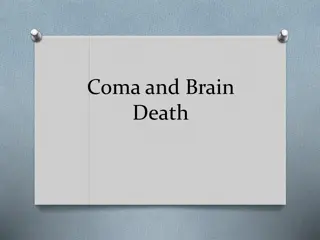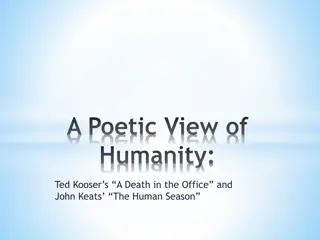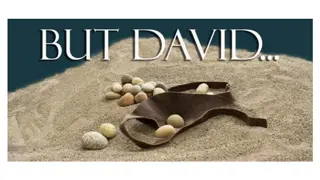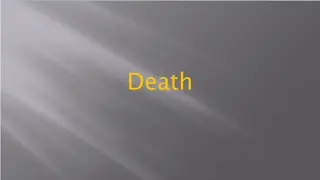Exploring Soyinka's "Death & the King's Horseman" - Insights and Interpretations
Delve into the profound work of Wole Soyinka through the lens of his play "Death and the King's Horseman", exploring themes of tragedy, Yoruba cosmology, and the intricate blend of ritual and stagecraft. Gain a deeper understanding of the African concept of tragedy and the pivotal role of Ogun, the god of iron, in shaping the narrative. Witness the clash of cultures and the consequences of disrupting ancient traditions in a gripping tale that transcends time and borders.
Download Presentation

Please find below an Image/Link to download the presentation.
The content on the website is provided AS IS for your information and personal use only. It may not be sold, licensed, or shared on other websites without obtaining consent from the author. Download presentation by click this link. If you encounter any issues during the download, it is possible that the publisher has removed the file from their server.
E N D
Presentation Transcript
Exploring Soyinkas Death & the Kings Horseman Prof. E.S. Dandaura
About the Play Death and the King's Horseman was written in the mid-1970s, during Soyinka s political exile from Nigeria and resident fellow at Churchill College, Cambridge Had prominent mention has been made of Death and The King's Horseman in the 1986 Nobel citation by the awarding committee.
Background "On Tuesday, 19 December 1944,the Alafin of Oyo died after a reign of 33 years. It was assumed that Jinadu, the master of his horse would follow his master by committing suicide. Three weeks later he came to Oyo dressed in white and began dancing through the street. At the crucial moment by the intervention of a British colonial officer he was arrested and prevented from committing the ritual suicide. [. . .] But another shocking event occurred- that of the ritual suicide of the youngest son of Horseman
Framework Soyinka s works cannot be understood without a thorough knowledge of Yoruba background. His works deal with a tradition that is still alive. His works celebrate the essence of the past and its system of thought. He responds to this essence in a spontaneous and natural way
African Concept of Tragedy this play is central to the development of the author's technique in blending ritual and stagecraft for the projection of African concept of tragedy
Ogun the god of iron and the metallurgic core and artistry was the first to succeed in conquering the transition. He crossed the gulf to the world by extracting iron from the earth and thus providing the human world with the source of its weapons and the tools. Ogun is also the god of creativity, guardian of the road, explorer, hunter, god of war, custodian of sacred oath.
What is Tragedy Ogun: Soyinka argues that traditional Yoruba tragedy represents the suffering experienced in these gulfs and the painful efforts of will or assertion performed to bridge them
Yoruba Cosmology Human world and the world of deities Human world: manifestations of the ancestors, the living and the unborn. Deities: The realm of the gods ancestors, living and unborn are separated from the realm of gods The gulf between these areas of existence is named transition
African concept of heroism Integrity Sacrifice (Selfless/community larger) Character: iwa do the right things so your good destiny becomes a reality Will
Concept of Heroism cont. Hard work: dignity in labour Accountability Respect for traditions Honour (personal and family)/ Shaming Culture Life is honour, it ends when honour ends
Cont. Gerontocracy (wisdom) A youngman who washes his hands well will eat with elders -Achebe
Greek and Yoruba Concept of Tragedy Ethical basis of tragedy: punishment Vs Reparation Rituals and sacrifice are offered to maintain the harmony with the gods Catastrophe: flaw in this nature Vs strong will and a desire to redeem the community Consequence of Tragedy: Fall Vs conscious sacrifice tragic hero transgresses and violates the accepted canons of social life glorification of the hero who is a social redeemer
In Soyinkas DTKH you see different stages of this process: the dissolution of self, the search for oneness, the exercise of free will and the retrieval of self
Notable Cultural Elements Rites of passage trance Not I bird (death) Yoruba Cosmology (3 Realms of Existence) Concept of justice (restorative)
